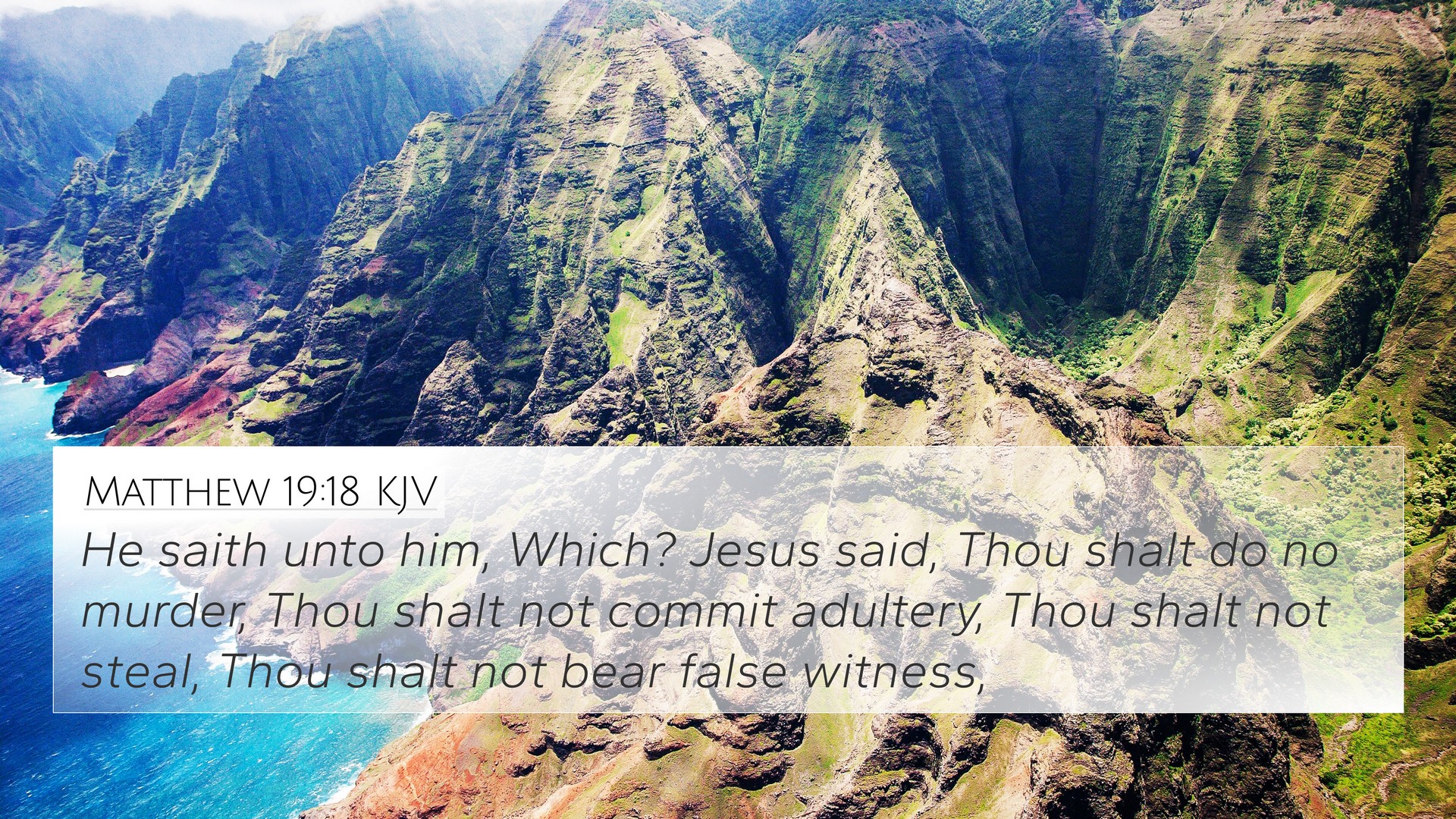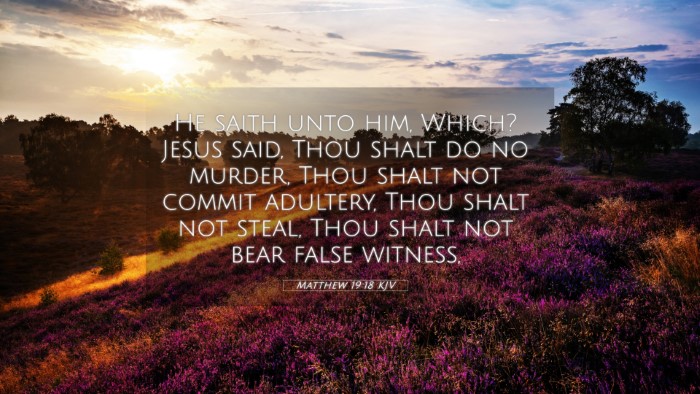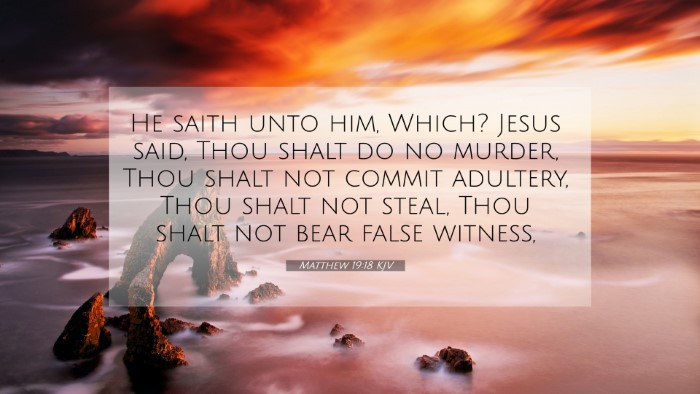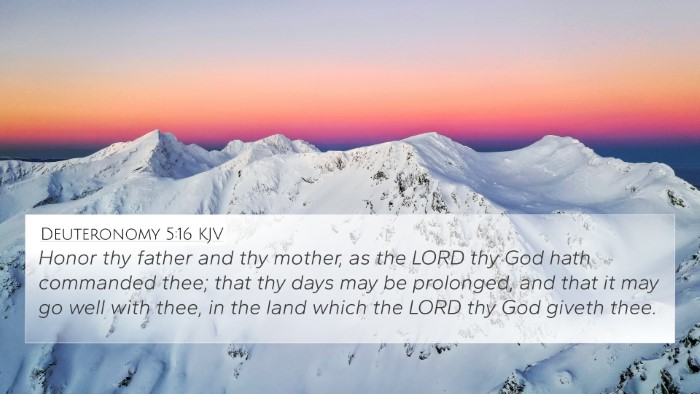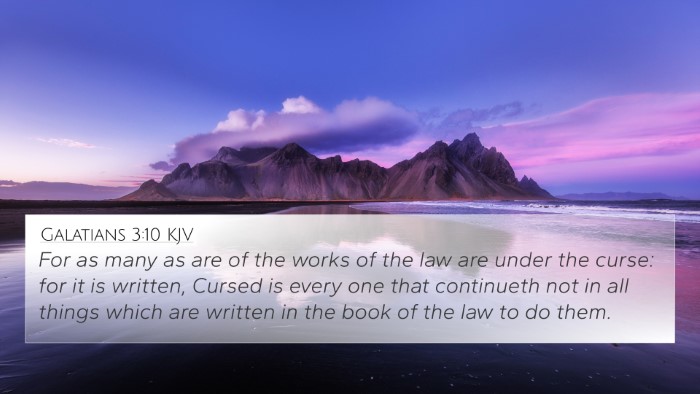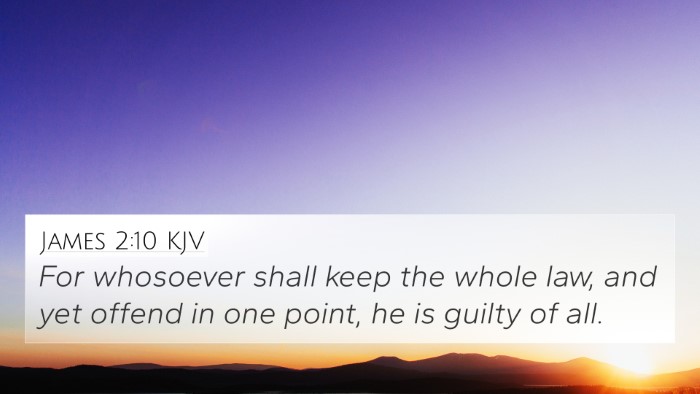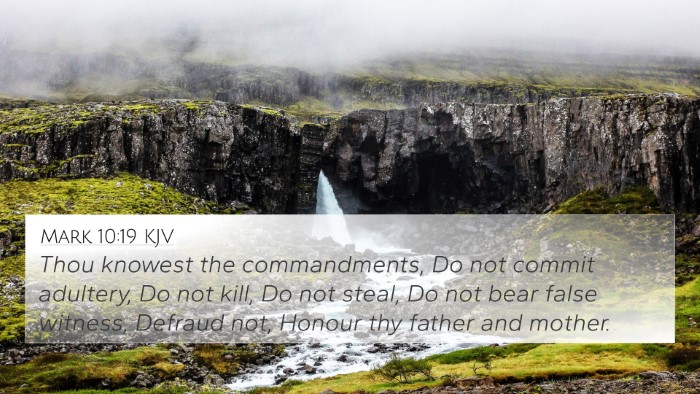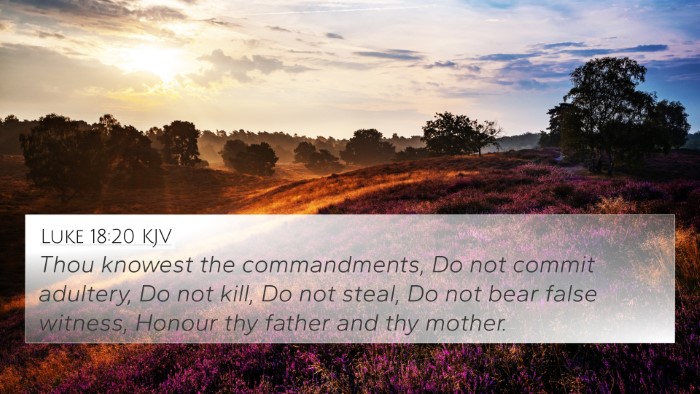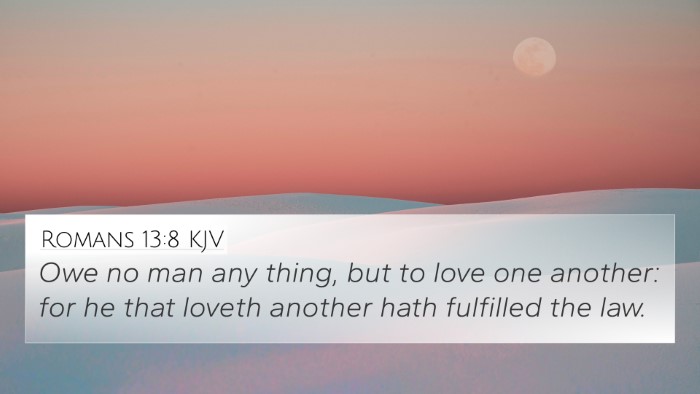Understanding Matthew 19:18
Verse: "He said unto him, Which? And Jesus said, Thou shalt do no murder. Thou shalt not commit adultery. Thou shalt not steal. Thou shalt not bear false witness."
Summary of Matthew 19:18
In this passage, Jesus reiterates some of the commandments given to Moses, emphasizing morality and ethics in human relationships. This verse is part of a larger dialogue regarding the nature of righteousness and the expectations of the Law. Jesus's response reflects a deeper understanding of the Law, moving beyond mere actions to the intentions of the heart.
Insights from Public Domain Commentaries
-
Matthew Henry:
Henry emphasizes that these commandments are foundational to social ethics and communal harmony. He explains that adherence to these laws is crucial for spiritual integrity and emphasizes the internal character of a believer over mere external compliance.
-
Albert Barnes:
Barnes points out that Jesus's selections from the commandments illustrate the moral law’s continual relevance. He notes that these are not exhaustive but indicate the essence of what it means to honor God and others. This also serves as a reminder of human sinfulness and the need for grace.
-
Adam Clarke:
Clarke's commentary focuses on the significance of the commandments in the life of a believer. He highlights that breaking one of these commandments damages one’s relationship with both God and fellow humans. Clarke encourages a deeper reflective practice in understanding these laws.
Cross-References
This verse connects with several other scripture passages that exemplify the themes of moral behavior and the commandments:
- Exodus 20:13-16: The Ten Commandments where these laws originate.
- Romans 13:9: "For the commandments... are briefly comprehended in this saying, namely, Thou shalt love thy neighbor as thyself."
- Matthew 5:21-22: Jesus expands on the command against murder, addressing the heart’s intentions.
- James 2:10: Emphasizes that breaking one law makes one guilty of breaking them all.
- 1 John 3:15: The moral implications of murder in the context of love for others.
- Galatians 5:14: Discusses fulfilling the law through love.
- Mark 10:19: A parallel account where Jesus lists similar commandments.
Thematic Connections
The exploration of Matthew 19:18 highlights several overarching themes that connect various Bible verses:
- Ethics and Morality: The importance of living ethically is reinforced through commands that protect life and relationships.
- Love and Relationships: Love as the underlying principle of obeying God's commands.
- Human Sinfulness: Recognizing our inability to keep the law perfectly leads to an understanding of the need for grace.
- Inner vs. Outer Righteousness: Jesus challenges the outward compliance of the law to reveal the need for a heart transformed by God.
Conclusion
Understanding Matthew 19:18 through the lenses of various biblical commentaries enhances the reader's perspective on the moral imperatives of scripture. This verse serves as a reminder of the calling to live righteously, highlighting the importance of heart attitudes behind actions. By examining related verses, themes, and commands, the believer is guided towards a holistic understanding of biblical ethics and grace.
Tools for Cross-Referencing
For those looking to explore further, various tools for cross-referencing can enhance one’s study of biblical texts. Resources include:
- Bible concordances
- Bible cross-reference guides
- Bible reference resources
- Cross-reference Bible study methods
- Comprehensive Bible cross-reference materials
Final Thoughts
As we seek to understand scripture, the connections between different Bible verses deepen our comprehension of God’s will and purpose for humanity. The study of passages like Matthew 19:18 serves not just as a historical reference but as an ongoing dialogue about living in accordance with divine principles.
